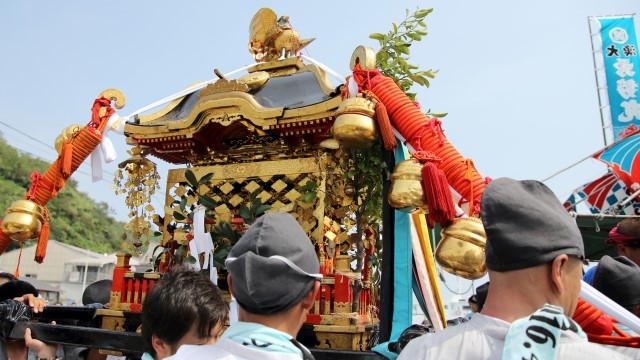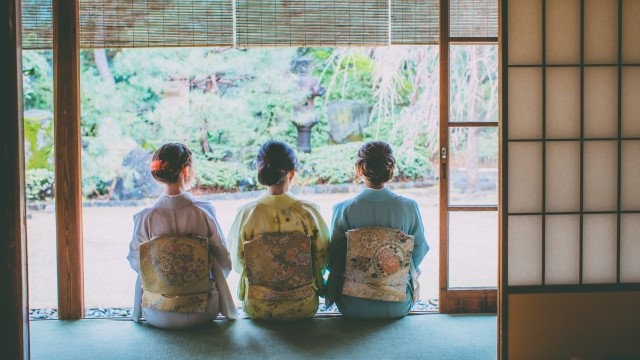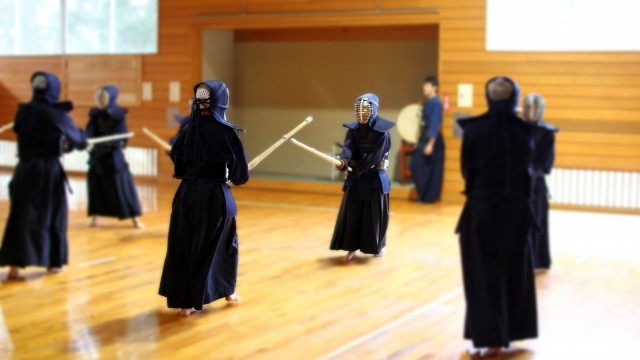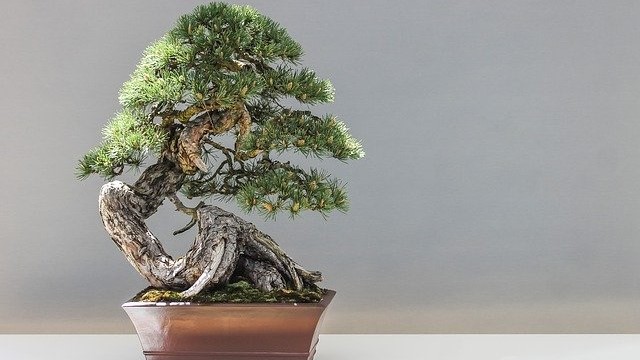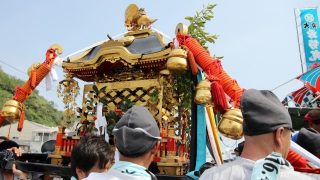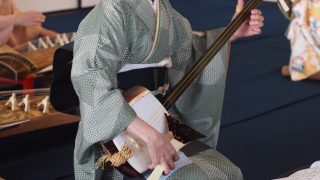About Omikoshi (お神輿-Portable shrine)
During the festival season in Japan, you can often see people parading around the town, carrying an Omikoshi (portable shrine) in full force.
The Omikoshi, carried on festivals, is familiar to Japanese people. The glittering Omikoshi (portable shrine) parade through the town with a vigorous shout is the climax of the festival.
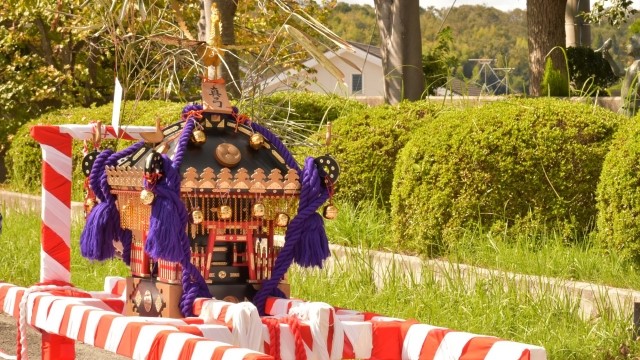
The beginning of Omikoshi
Since ancient times, it was believed that there were eight million gods in Japan, and shrines were built in sacred places where these gods were located.
At the shrine, people welcomed the gods on a particular day every year and entertained them with offerings and Kagura(神楽). In Japan, the rituals of praying for a good harvest in spring, giving thanks for the harvest in autumn, and ministering to the gods in the hope that there would be no bad epidemics or disasters were called “Matsuri” in Japan.
The Omikoshi (portable shrine) is an indispensable part of the Matsuri(festival). Golden phoenixes are placed on the roof, and the Omikoshi (portable shrine), decorated with gorgeous carvings and strings, is the main part of the festival, along with the floats(山車).
The festival culminates with “Togyo(渡御),” a ceremony in which the gods move from shrine to town to give divine virtues to houses. The Omikoshi is the vehicle of the gods when they go on the journey. Carried by the people in the town, God would march through the town.
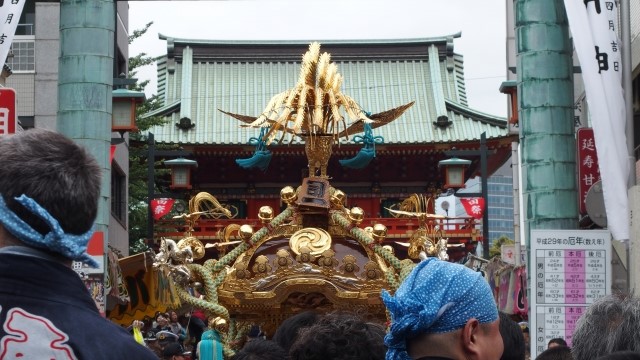
About the shout “Wasshoi” when carrying a Omikoshi
Wasshoi! Wasshoi! is probably one of the most common calls you’ve ever heard in a festival. The men shout in unison as they carry the Omikoshi (portable shrine), and because of the power of the shouting, it has become so popular in Japan that some Japanese people are unconsciously saying it even when they are carrying heavy objects in daily life.


